Found yourself in a car crash that wasn’t your fault? Over 2.1 million people hit the emergency room each year after such incidents. This article is your guide to handling the aftermath wisely and confidently.
Keep reading for essential tips and tricks!
Key Takeaways
Check everyone’s safety, move to a safe spot, and call the police right after an accident.
Gather as much information as you can from the scene, including photos and witness details.
Visit a doctor even if you feel okay because some injuries appear later.
Understand your state’s traffic laws and how your insurance works for car accidents.
Consider getting legal advice if dealing with insurance gets complicated or if you think about suing.
Table of Contents
Understanding Fault in Car Accidents
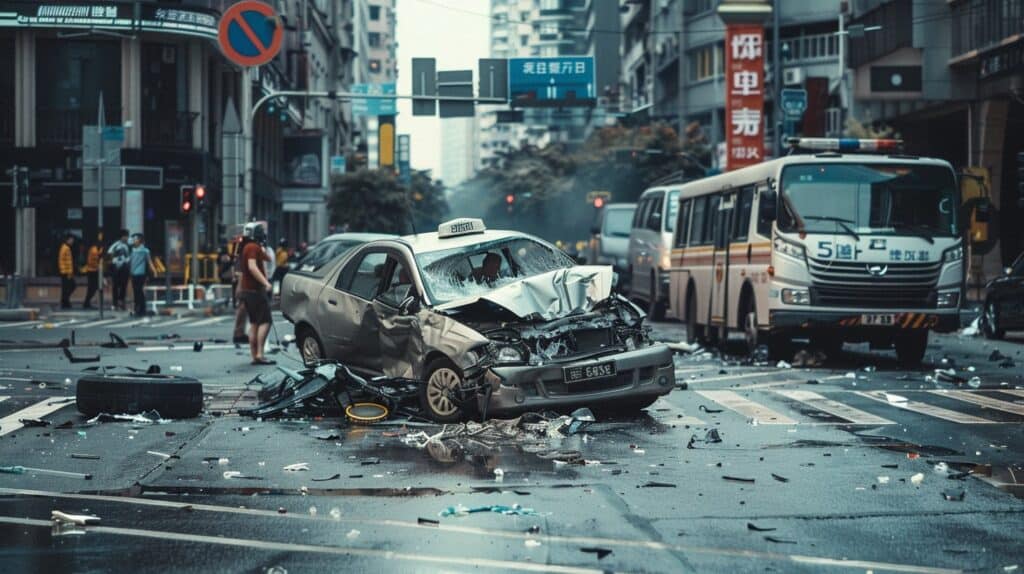
In car crashes, “fault” means who caused the mess. Figuring out fault is key because it decides who pays for the damage.
Definition of Fault in Car Accidents
Fault in car accidents points to who caused the crash. Think of it like playing tag; someone is “it.” In this game, being “it” means you or your insurance company might have to pay for damages—like vehicle repairs and medical bills.
The law has a special word for this: negligence. Showing someone was careless, like texting while driving, can prove they’re at fault.
“Proving fault means proving negligence.”
It gets trickier in some states with no-fault insurance. Here, drivers deal with their own insurers for smaller claims, regardless of who caused the accident. But if injuries are severe or costs high, knowing who’s at fault still matters a lot.
That’s when insurance companies turn into detectives, looking for clues in police reports and photos from the scene to figure out who pays what.
Importance of Establishing Fault
Figuring out who caused the crash is like putting together a giant jigsaw puzzle. The person who messed up has to pay for any harm done. This means they or their insurer covers costs from medical bills to fixing your car.
It’s all about proving negligence, showing the other guy was careless and that led to what happened. Evidence like photos, witness talks, and doctor reports help paint the clear picture needed.
If things get tricky, especially with serious hurts involved, it might be time to chat with car accident attorneys in Oklahoma City. They’re pros at dealing with these puzzles and can guide you through the maze of filing claims or even starting a lawsuit if needed.
Now, let’s dive into what you should do right after an accident isn’t your fault.
Immediate Steps to Take After a Car Accident That’s Not Your Fault
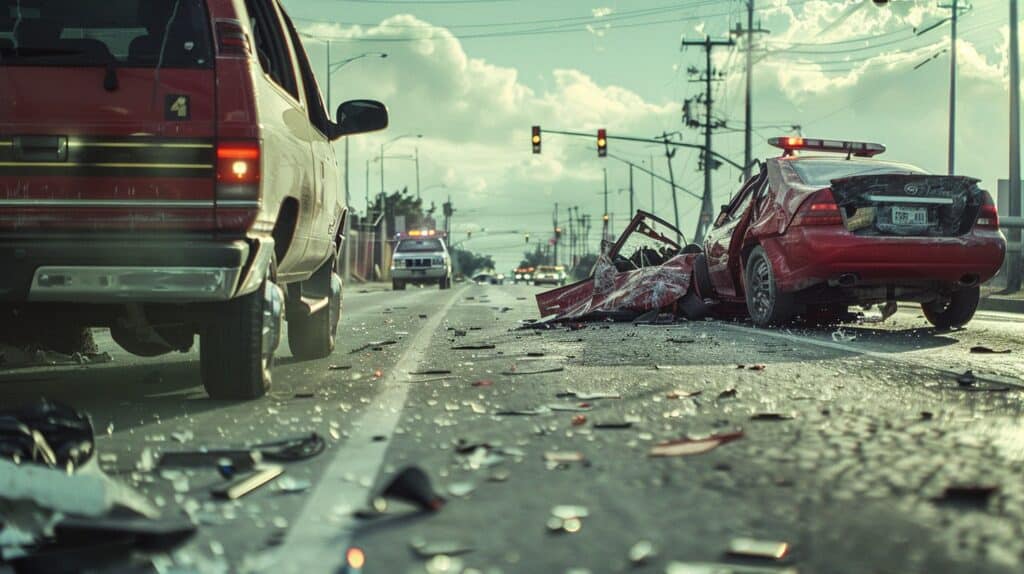
Right after the crash, check if everyone is okay and get to a safe spot. Then, call the police to report the accident.
Ensuring Everyone’s Safety
First off, check on all involved in the accident. Are you hurt? How about others around you? Safety comes first, always. If someone is injured, call for medical help right away. Even minor car crashes can lead to serious injuries like a herniated disc or worse.
“Safety isn’t expensive, it’s priceless.”
Next up, make sure your vehicle and others are out of traffic’s way if possible. Turn on those hazard lights to alert coming drivers. Accidents can cause more trouble if cars block the road or are hard to see.
Contacting the Police
Once everyone is safe, your next move is to call 911. This step is not something you should skip. Even if the wreck seems minor, having officers and a report can make all the difference.
They document everything, making it clear who was at fault in the traffic mishap. Plus, this report becomes a key piece of evidence if there’s an insurance claim or legal action down the line.
Having cops at the scene also means they collect info from everyone involved and any witnesses. This could include driver’s license numbers, vehicle registrations, and insurance details which are crucial for your records.
Snap some photos while you’re at it – pictures of car positions and damages can tell more about how things went down than words ever could.
Gathering Information
After a car crash that wasn’t your fault, grab as much info as you can. This step is like collecting pieces of a puzzle to see the full picture later on.
- Snap lots of photos. Get shots from different angles showing the damage to all vehicles involved and any skid marks or road signs nearby.
- Chat with witnesses. Anyone who saw the accident happen can give valuable insights. Ask for their names and contact information.
- Exchange details with the other driver. This includes their name, address, phone number, insurance company, and policy number.
- Jot down specifics about the accident scene. Note things like the time, location, weather conditions, and how the accident happened.
- Contact law enforcement and get a police report. Having an official document stating what happened is crucial.
This info acts as evidence if there are any disputes about who’s at fault in the wreck.
Now that you’ve collected all necessary information, let’s look at what comes next: visiting a doctor for a check-up.
Post-Accident Procedures
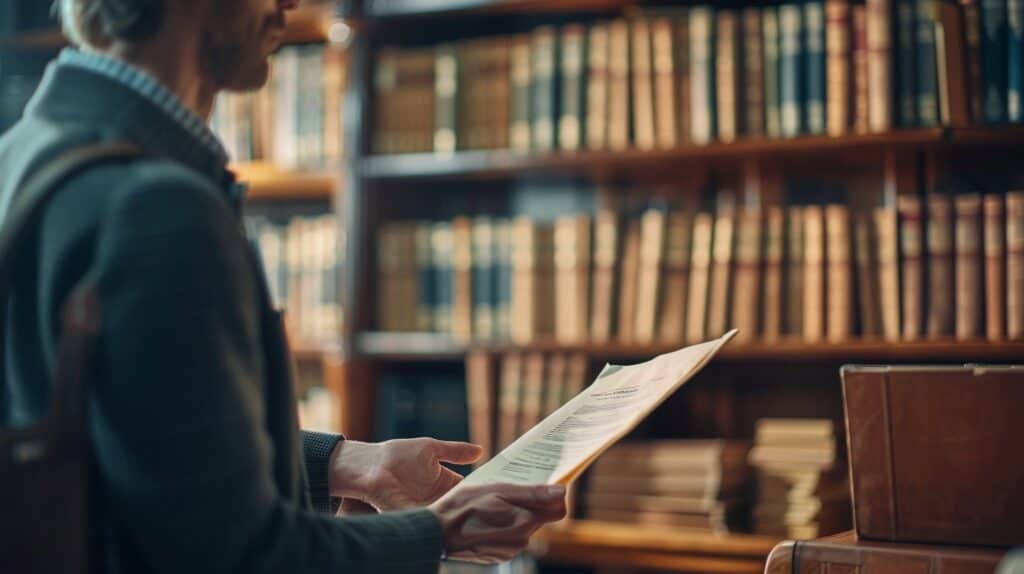
After the dust settles from your car crash, it’s time to think about what comes next. You’ve made sure everyone is okay and talked to the police, but there’s more to handle. Now you need a checkup, even if you feel fine.
Why? Because some injuries hide and show up later. Then, it’s smart to learn about your state’s rules for crashes and how insurance works. This knowledge helps you talk to your own insurance folks without tripping over words or making mistakes that could cost you.
Next step? Write down every little detail about the accident. Trust me, details fade faster than a fresh paint job in the sun! Knowing who was where and did what makes everything clearer when talking with lawyers or insurers.
Speaking of insurers, give yours a ring as soon as humanly possible after your medical checks are done. They’ll want all those juicy details you wrote down so they can start fighting on your side.
Now might also be time for legal advice – especially if
Visit the Doctor
Heading to a healthcare professional after you’ve been in an auto crash is a smart move. Over 2.1 million folks ended up in the emergency ward from vehicle accidents in one year, says data from a health agency.
Even if you feel fine, some injuries don’t show up right away. A doctor can spot these hidden problems during a check-up. Plus, they’ll jot down your injuries, which you might need for your compensation claim later.
Doctors use tools like X-rays and MRIs to look deep into your body without making any cuts. This way, they find out if anything’s wrong inside that isn’t obvious on the outside. And hey, getting checked could mean catching something early before it becomes a bigger pain down the road! Don’t brush off this step; it proves crucial not just for your well-being, but also for any legal matters related to the collision that caught you off guard.
Understand State Laws and Insurance Coverage
Every state has its own traffic laws that can affect your auto accident claims. In no-fault states, you usually deal with your own auto insurance company for car accident injuries, no matter who caused the crash.
But in at-fault states, the person who caused the collision covers the costs. This could include vehicle damage and medical bills. So it’s crucial to know where your state stands on this.
Insurance policies throw another curveball into the mix. Terms like “uninsured motorist coverage” or “personal injury protection” aren’t just fancy phrases – they’re lifelines if things go south.
Knowing what your insurance policy includes can save you from a headache later on. If you’re unsure about any of this, talking to an automobile accident lawyer might be a good move.
“Knowing is half the battle when dealing with after-effects of a car mishap.”
Contacting Your Insurance Company
Call your insurance company right after the accident, even if it wasn’t your fault. It’s a must. They need to know what happened so they can start working on your claim. Give them all the details: where you were, how it happened, and any damage to your car.
But keep it brief; no need for a long story.
If you’re in a state that blames the crasher, your insurer will go after the other driver’s insurance to cover costs like repairing your vehicle and medical bills if you got hurt. And in places where no one’s blamed? Your own coverage might help with those doctor visits and fixing up your car without going after the other person’s policy.
Just make sure not to chat much with the other driver’s adjuster – let yours handle it or talk through an attorney if things get tricky.
Recording Accident Details
Grab a notepad or your phone and start jotting down every detail about the automotive accident. Note where it happened, how it looked, and any damages to both cars. Snap photos of the traffic signals, skid marks on the road, and each vehicle’s damage.
These images serve as silent witnesses to what went down.
Next steps involve reaching out to your insurance coverage provider.
Considerations for Legal Action
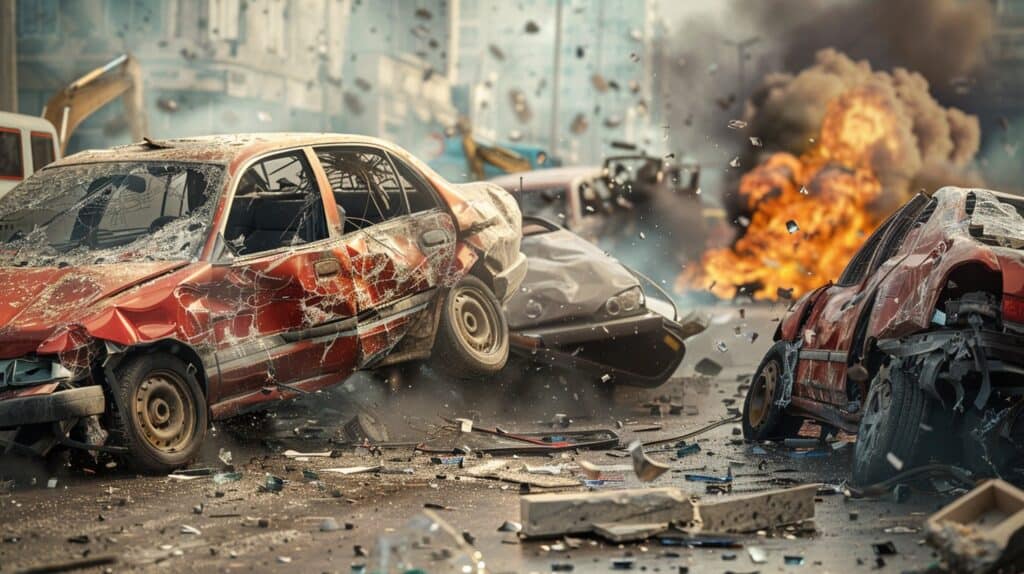
Thinking about suing after a car crash? It’s like stepping onto a wild ride. First, know when it’s smart to call up the other driver’s insurance folks for a chat. But sometimes, words don’t cut it, and you need to bring in the big guns – your lawyer friend.
This choice could lead you down the path to getting cash for your troubles or making sure someone pays for their careless driving.
When to Consider Suing the Other Party’s Insurance Company
Suing the other driver’s insurance can look like a big step. Think it over if their settlement doesn’t cover your losses. Maybe medical bills pile up and lost wages hit hard. This is where legal action shines, proving what you’ve lost to get rightful compensation.
A car accident attorney becomes your best friend here, guiding through the murky waters of claims and rights.
Feeling ignored or low-balled by the other insurance? Get a lawyer on your side. They’ll handle talks with sharks in suits so you can focus on getting back on track. Remember, silence is golden when the other insurer comes calling for a chat.
“In justice, timing matters just as much as evidence.”
Next up: Understanding how an attorney plays into your claim journey.
The Role of an Attorney in Your Car Accident Claim
A car accident attorney plays a big role in getting you what you deserve after an accident. They know the ins and outs of personal injury law better than anyone else. This means they can fight for your rights effectively.
Imagine having someone who knows exactly how to deal with insurance companies, understands medical treatment claims, and can make sure you’re not left paying out of pocket for something that wasn’t your fault.
These attorneys also guide you through each step, from filing a claim to if things get more serious and end up in court. They take care of the heavy lifting so you can focus on getting back on your feet.
With their help, compensation for damages like lost income, pain and suffering, and any bills related to treating injuries becomes much easier to achieve. It’s like having a seasoned navigator by your side in rough waters; they keep you on course towards fair compensation without missing a beat.
Ready to learn how this all gets started? Let’s talk about contacting them right after an accident happens.
Tips for Interacting with the Other Party
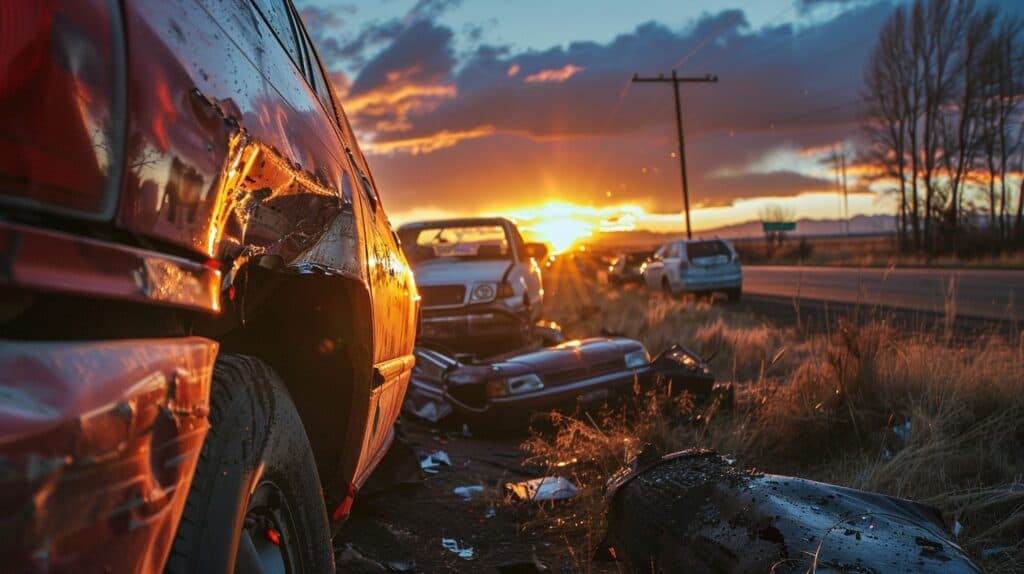
Talking to the other driver after a crash can be tricky. Keep cool and avoid saying it’s your fault, as this can complicate things later.
Staying Calm and Collected
After a car crash, keeping your cool is key. Your heart may race and tempers might flare, but breathe. Taking deep breaths helps you stay clear-headed. This means you can handle the situation better and avoid saying something that might hurt your case later on.
Avoid pointing fingers or jumping to conclusions at the scene. Even if it’s obvious the other driver ran a red light or was speeding, let the police and insurance companies figure out the blame.
Staying polite and cooperative makes everything smoother for everyone involved—like oiling a squeaky wheel instead of letting it grind.
Avoiding Admissions of Guilt
Keeping your cool is key, but so is watching what you say. Even a simple “I’m sorry” can sound like you’re saying the crash was your fault. Words matter a lot after an accident. Avoid saying anything that could seem like you’re admitting guilt.
This doesn’t mean you should lie or avoid talking to police and insurance adjusters. Just stick to the facts, without adding opinions or feelings about what happened.
Instead of chatting too much with the other driver, focus on gathering details like photos of the scene and witness contacts. This information will be gold for your insurance claim or if things go legal.
Keep interactions short and sweet – swap insurance info, check if anyone’s hurt, and wait for law enforcement to show up. Let them piece together who’s at fault without your two cents clouding the picture.
Limiting Interaction with the Other Party
After a car accident that’s not your fault, it’s smart to keep chats with the other driver short. Just swap contact and insurance info. You might want to say sorry or chat more, but don’t.
Words can get twisted, and suddenly, you’re in hot water for something you didn’t do. If their insurer calls asking for a recorded statement, play it cool and refer them to your policy company or lawyer.
Let the pros handle the nitty-gritty while you focus on getting back on track.
It’s tempting to solve things fast, especially when bills pile up and your ride needs fixing yesterday. But rushing can lead you into traps set by the other party’s insurer. They have tricks up their sleeve to make you admit guilt without realizing it.
So zip it unless your insurance agent or legal rep gives the green light. This way, those minor bumps won’t morph into mega headaches down the road.
FAQs About What to Do After a Car Accident That’s Not Your Fault
What’s the first thing I should do after a car accident that’s not my fault?
Right off the bat, check if anyone got hurt and call for medical help if needed. Then, act like Sherlock Holmes: snap photos of the scene, gather info from others involved, and keep your cool. It’s like gathering nuts for winter—you’ll thank yourself later.
Should I chat with the other driver’s insurance company?
Tread carefully here! It’s okay to talk but guard your words like a secret cookie recipe. Sometimes what you say can twist around and bite you back like an angry cat. Better yet, let someone who speaks their language handle it—like a personal injury attorney.
Do I really need to see a doctor even if I feel fine?
Yes! Think of it as going on a treasure hunt inside your body; sometimes injuries hide like sneaky pirates waiting to surprise you days later. Plus, having records from medical professionals is golden when dealing with insurance claims.
How do I deal with my car damage?
First things first: breathe in, breathe out—it’s fixable! Contact your insurance carrier about the fender-bender or any cosmic collision you’ve encountered; they’ll guide you through, whether it involves fixing tail lights or getting a rental car while yours is in the shop.
What if the person at fault doesn’t have insurance?
This situation is stickier than bubblegum under a school desk, but fear not! Your own uninsured motorist coverage can be your knight in shining armor here—if you have it, that is. Otherwise, discussing options with an attorney might be wise to navigate these murky waters.
Can posting about my accident on social media affect my personal injury lawsuit?
In short: yes! Posting online is like leaving footprints in wet cement—hard to erase and visible to all, including those pesky insurance adjusters looking for reasons to pinch pennies on your claim. Keep those updates offline and share them face-to-face over coffee instead.
